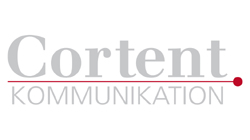The German Mittelstand
German SMEs do battle to conquer market Russia

September brings more good news to Germany, world champion exporter. The Statistisches Bundesamt – Federal Bureau of Statistics – reports that for the first time ever, German exports of merchandise for the month of July 2014 were in excess of 1 thousand million Euros, a record amount for one month. This result dovetails with the SME survey conducted shortly beforehand and published by Ernst & Young; the analysis, now in its 12th year, quizzed 700 SMEs, and an unprecedented 56% of those interviewed replied that they were fully satisfied with how their companies were faring.
These numbers, however, only reflect a momentary state of affairs. The worsening of the crisis in the Ukraine which has already led the European Union to inflict economic sanctions on Russia could very quickly cast a shadow over the picture or, even worse, backfire over the whole economy, and German SMEs in particular. Another indicator highlighted by the study is that one in five companies today is bracing to withstand losses as a result of the conflict.
Volker Treier, Deputy CEO and Head of Foreign Trade with the Association of German Chambers of Industry and Commerce (DIHT) believes that the machine tool and innovative plant sectors which traditionally are where SMEs are most active in Germany will be the hardest hit. The effect of the European Union sanctions and the lack of clarity in how to apply them, heightened by the devaluation of the rouble and the consequent increase in price for the Russian client all adds up to a heavy drawback to German exports. The political difficulties with the EU is pushing the Russian economy back into the arms of China. None of this, evidently is in the interests of German exports – Russia is indisputably a major market with great potential, above all for German SMEs.
Those directly involved all share the same point of view. A survey carried out by the Russo-German Chamber of Commerce (AHK) showed that some three-quarters of German companies interviewed believe that the long-term potential of the Russian market is high, or very high. It is with this belief in mind that when tensions between the Kremlin and the EU are behind us, German exports to Russia return to reasonable levels . It is of paramount importance that no long-term interruptions be allowed to upset trade, and that preparations be made for a campaign to regain market share in Russia to be launched as soon as the geopolitical situation gets back to normal.















